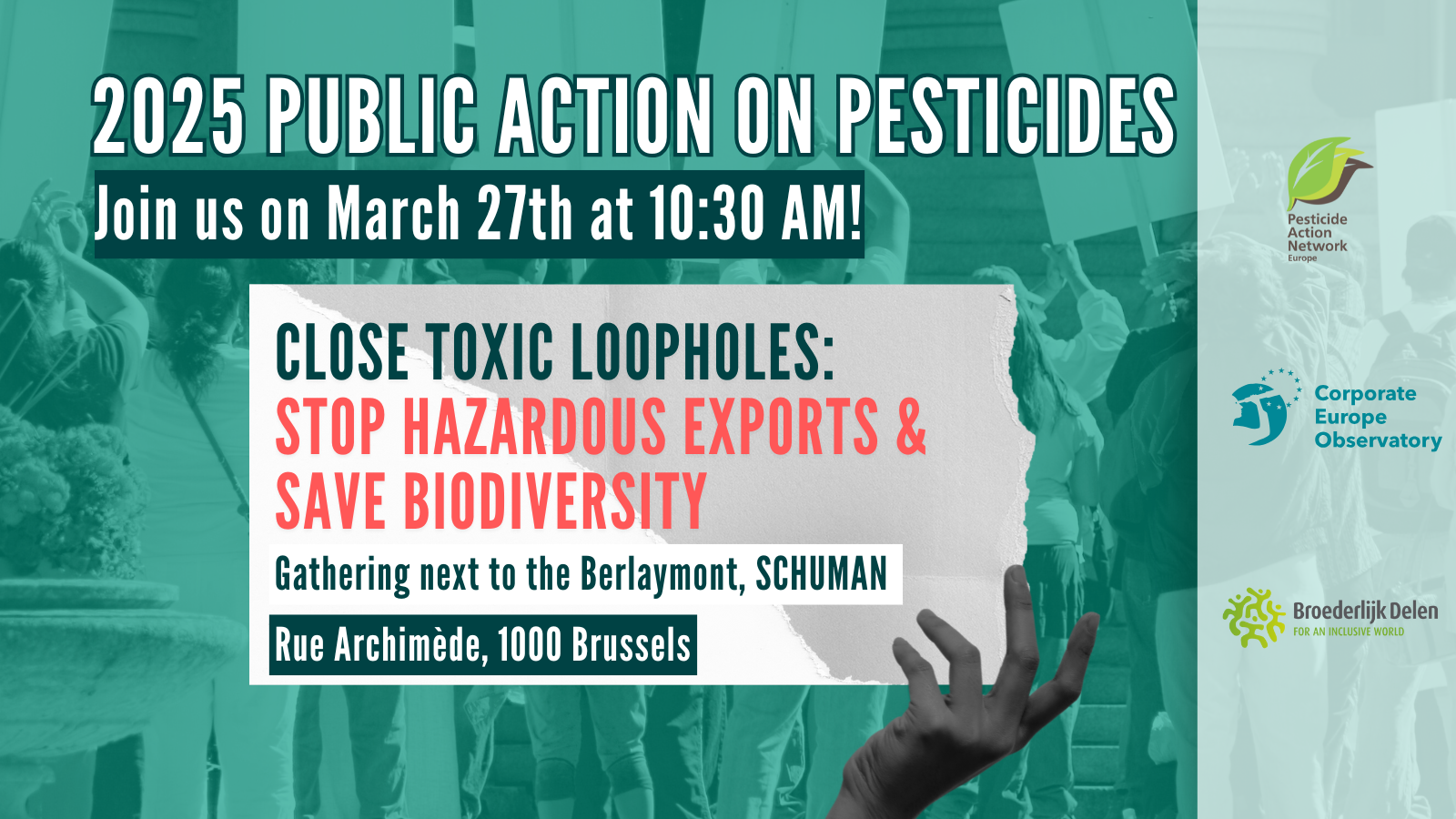The EU is reviewing a guidance document to protect insects and other arthropods against the negative effects of pesticides. The current document is outdated and was co-written by the pesticide industry. It has never led to a ban on pesticides that contribute to Europe's staggering loss of its insect biomass and its farmland bird populations. The EFSA working group preparing the new guideline is unbalanced and is discussing unscientific ecosystem service and disservice concepts. This will not correct the biodiversity collapse we are facing. In a new Manifesto, PAN Europe urges the EU to protect arthropods – butterflies, beetles and other invertebrates essential for life on Earth.
According to PAN Europe's analysis of the EFSA working group preparing the new rules [1], only 3 out of 11 members (27%) are ecotoxicologists, and shockingly, not a single real expert on insects (entomologist) is involved. Six out of the 11 experts are members of national authorisation bodies, while 5 members previously supported EFSA policies that PAN Europe considers not in line with science; 3 still closely collaborate with the pesticide industry, and 4 have published research in collaboration with the industry.
Lysiane Copin, policy officer at PAN Europe says: “We need a much better guideline to protect insects and bugs against pesticides. It would be extremely sad if our children can no longer enjoy fluttering butterflies or humming bumblebees in the fields. But there is more: fertile soil and crop pollination depend on these little creatures, so the future of our farmers and our food security is at stake.”
On our way to silent spring
Over the past 25 years, flying insect biomass has dropped by 75% in certain areas of Europe. Even nature areas are affected. In our “Licence to Kill - an EU guideline with far-reaching consequences” report, we explain why the EU fails to protect these small creatures vital to life on Earth. [2] Undisclosed documents obtained by PAN Europe show that EFSA and its partner, researchers from the Wageningen Environmental Research, show no intention to increase the level of protection of insects or of biodiversity as a whole.
The current EU guideline does not protect the environment, which is contrary to EU law. It only looks at single pesticide exposure, not at the cocktail of pesticides to which life is exposed daily. It only considers short-term lethal effects, ignoring real-life long-term effects. It also uses the industry-promoted concept of "recovery". This misleading idea suggests that populations can survive repeated 50% lethality by a single spraying and even will “come back” if 100% of a population is wiped out. No scientific research supports this assumption, while it is not in line with the reality: many species are not highly mobile, and neighboring fields are also sprayed, preventing any recovery in intensive agricultural landscapes.
Insect decline will affect our food supply
In our recent interview, professor Carsten Brühl from Landau University, an ecotoxicologist, explained: “The main misconception about the regulation of pesticides is that the regulation is always for one product alone. In reality, arthropods and anything that lives in agricultural landscapes are encountering a multitude of pesticides, always in mixtures of 30 different pesticides. We don't know what this does to organisms. There is no information, and this is not regulated by the authorities”. [3]
Since arthropods are essential for terrestrial ecosystems and particularly for farming, their decline poses a real threat. “Insect declines are going to make it really hard to feed everybody, and the human population in the future is likely to struggle unless we do something”, stated Dave Goulson, professor of biology at the University of Sussex, in an interview published on March 26. [4]
Manifesto - Protecting arthropods: a call for urgent reform in EU Pesticide Regulation
The manifesto will be presented today during a manifestation from 10.30 to 12 in front of the building of the European Commission.

Contact:
- Lysiane Copin, Policy Officer at PAN Europe, lysiane [at] pan-europe.info, +32 2 318 62 55
- Tjerk Dalhuisen, Communications Officer tjerk [at] pan-europe.info, +31 6 146 991 26
Notes:
[1] EFSA working group PPR Environmental Risk Assessment (ERA)
[2] Report Licence to Kill - an EU guideline with far-reaching consequences, PAN Europe, November 2024
[3] A cocktail of pesticides eradicates biodiversity - Interview with Prof. Dr. Carsten Brühl
[4] Pesticides threaten the bulk of life on Earth - Interview with Prof. Dave Goulson
